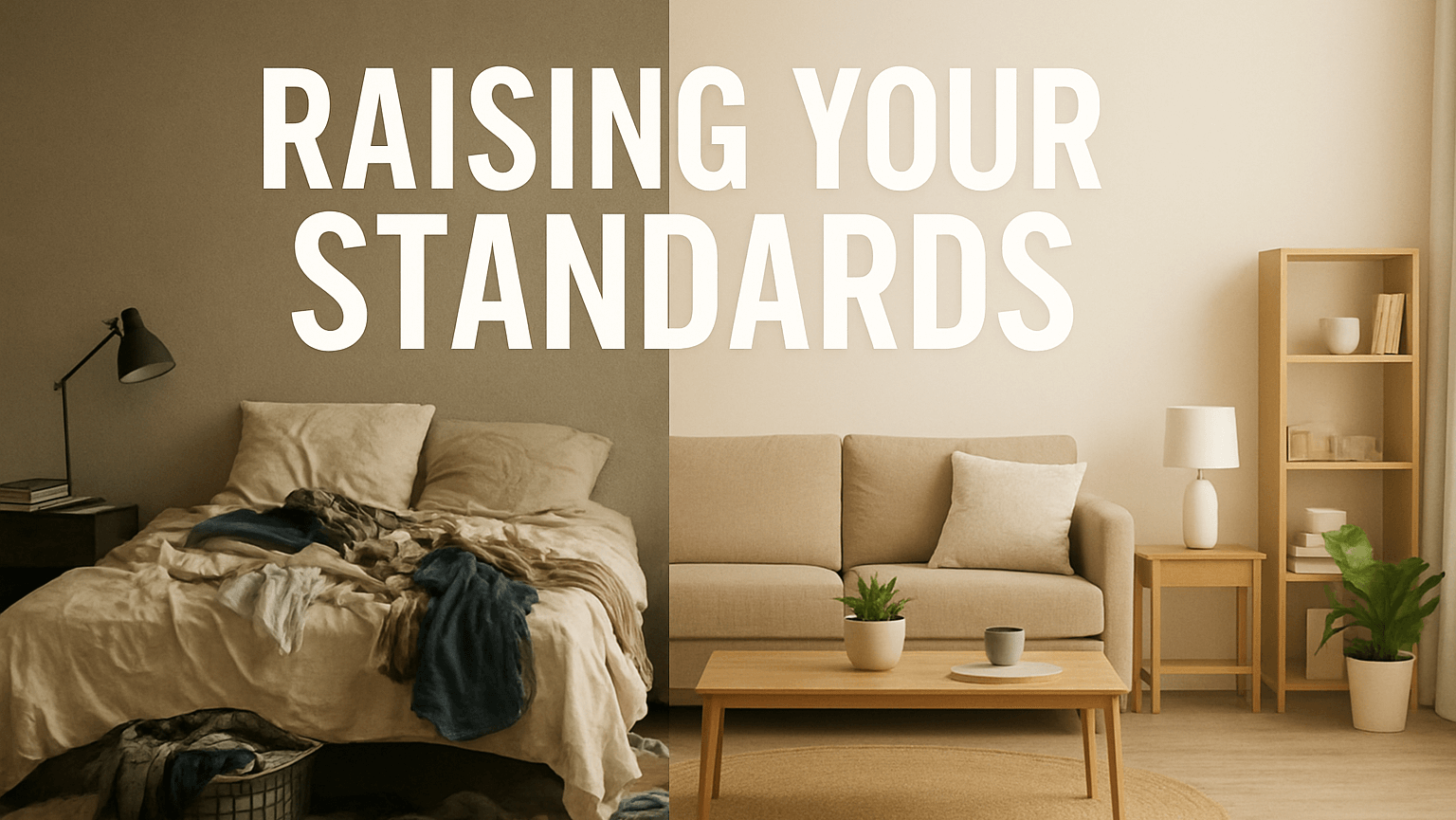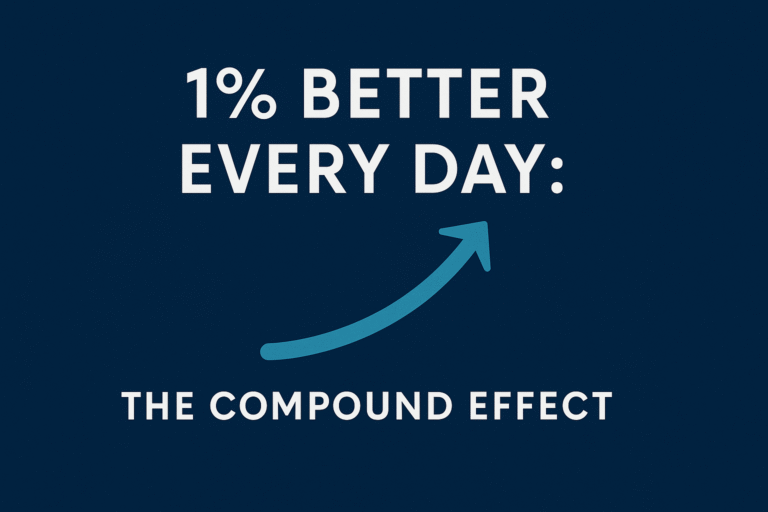Most people don’t fail because they aim too high—they fail because they aim too low and hit their target. If you want a better life, stronger relationships, and more opportunities, it all starts with one thing: raising your standards.
Think about it. Your daily habits, relationships, and even your financial situation are a reflection of what you’re willing to accept. If you raise what’s acceptable—and more importantly, what’s not acceptable—your life naturally begins to align with those higher expectations.
Why Raising Your Standards Changes Everything
Standards are like an invisible thermostat for your life. Set it low, and you’ll settle for less than you’re capable of. Set it high, and you’ll work, think, and act in ways that pull you toward a better reality.
For example:
I remember my first year in sales. My “goal” was just to hit the minimum quota. And I did… barely. But the day I decided I wouldn’t accept anything less than being in the top 10% of the team, my approach shifted. I stayed late, studied my scripts, learned from the best—and within three months, I was in the top 10% in the company. The only real change? My standards.
The Connection Between Standards and Self-Worth
You can’t have high standards without believing you deserve more.
Here’s the truth: your standards will never rise higher than your self-worth. If you think you only deserve average results, you’ll keep tolerating average actions.
Tony Robbins famously says, “The quality of your life is a direct reflection of the standards you set for yourself.” When you raise your standards, you’re essentially telling yourself and the world, “I’m worth more, and I refuse to settle.”
Signs It’s Time to Raise Your Standards
Not sure if you’ve been living below your potential? Watch out for these signs:
- You keep making excuses or blame others.
- You dread Mondays (and secretly count down to Fridays).
- Your health is “fine” but not thriving.
- You’ve been in the same spot for years with little growth.
- You feel more drained than energized by your daily life.
If these hit home, it’s not a “you need to work harder” problem—it’s a “you need to expect more from yourself and your environment” problem.
How to Start Raising Your Standards
1. Identify Your Non-Negotiables
Non-negotiables are the things you will no longer accept in your life. This could be:
- Staying in toxic friendships or relationships.
- Working in a job that drains you with no long-term opportunity.
- Neglecting your health because “you’re too busy.”
Write down three areas in your life right now where you’ve been settling. That list becomes the first place you raise the bar.
2. Upgrade Your Environment
Your standards are contagious—either you pull others up, or they pull you down.
When I wanted to get in better shape, I started spending more time with friends who enjoyed hiking, going to the gym, and eating healthy. Without even trying, my own habits improved because my environment supported my new standards.
3. Commit Publicly
It’s one thing to say to yourself, “I’m going to save $500 a month.”
It’s another to tell your best friend, your family, and your social media followers that you’re committing to it. Public commitments create healthy pressure to stick to your raised standard.
4. Level Up Gradually
You don’t need to overhaul your entire life in one night. In fact, that’s the fastest way to burn out. Start by raising one standard at a time—maybe it’s your sleep schedule this month, your workout routine next month, and your financial habits the month after.
The Ripple Effect of Raising Your Standards
Once you start raising your standards in one area, it spills into others.
- You stop tolerating bad relationships, and suddenly you’re surrounded by people who push you higher.
- You start taking your health seriously, and your energy fuels better performance at work.
- You demand more from yourself at work, and your income grows.
It’s like compound interest for personal growth—the better you get, the faster you get better.
A Word of Warning: High Standards vs. Perfectionism
Raising your standards doesn’t mean demanding perfection.
Perfectionism will paralyze you—high standards will empower you. The difference? With high standards, you accept progress over time, not instant results. You aim to be better today than yesterday, without beating yourself up for not being flawless.
What Happens When You Don’t Raise Your Standards
When you settle for less than you’re capable of, here’s what’s at stake:
- You normalize mediocrity.
- You miss out on opportunities because you’re not prepared to seize them.
- You reinforce the belief that you can’t do better.
And here’s the hard truth—life will always meet you at the level of your standards, not your goals.
Final Thoughts: Your Life Will Rise to Meet Your Standards
If you remember nothing else from this article, remember this:
Your life is always a reflection of what you’re willing to tolerate. The moment you stop accepting less, you’ll start attracting more.
Start small. Raise one standard today—maybe it’s your health, your relationships, your work ethic—and watch how the rest of your life begins to follow.
Join the community of people raising their standards everyday here at Permission Free Living! Also share this with someone who needs this information!
References:
- Robbins, Tony. Awaken the Giant Within. Free Press, 1991.
- Covey, Stephen R. The 7 Habits of Highly Effective People. Simon & Schuster, 1989.





